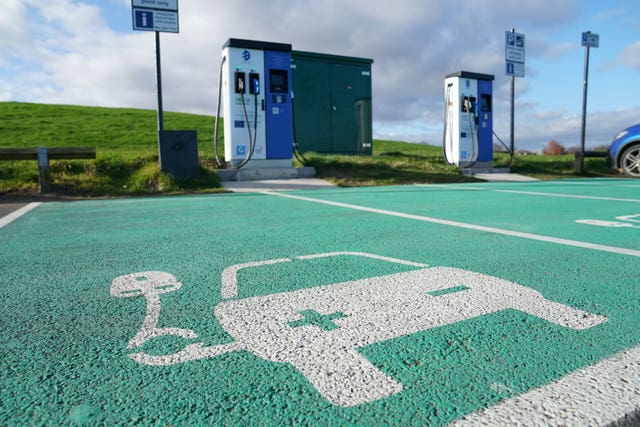Calls grow for Government to bring fossil fuel car phaseout forward to 2030
Labour has also called for the date to be shifted to 2030.

Tesco has joined big businesses calling for the Government to move forward the date to phase out sales of new fossil fuel cars and vans to 2030.
Dixons Carphone, E.ON, Heathrow, Lime and SSE are also part of the business coalition of 27 large companies calling for ministers to target a 2030 date for all new cars and vans being zero emissions.
On the second day of the international event Climate Week NYC, the UK Government is also being urged to boost charging points, support UK manufacturing of battery electric vehicles and extend financial incentives for clean cars and vans to further drive demand.

The call comes ahead of an expected announcement from the Government on its consultation to move the date for the phase out of sales of new petrol and diesel cars and vans forward from 2040 to 2035, and potentially earlier, and to include hybrids in the ban.
Labour has also called for the date to be shifted to 2030 to cut carbon and curb air pollution, while the Government’s advisory Committee on Climate Change said the phase out should happen by 2032 at the latest.
Tesco, Dixons Carphone, E.ON, Heathrow, Lime and SSE are also joining the UK electric fleets coalition, a partnership launched by the Climate Group and BT, to electrify over 400,000 of their own vehicles in the UK.
Most of the companies are working through the Climate Group’s EV100, which Tesco is also joining, a global campaign of dozens of businesses committed to switching to clean vehicles and reporting on their progress.
Helen Clarkson, CEO of international non-profit the Climate Group and organisers of Climate Week NYC, said: “Only bold action can achieve the 50% cut in emissions the world needs by 2030, and the UK, as host of upcoming UN climate talks, must set an example.
Of course, it’s not as simple as just setting a target.
“More government action is needed to support manufacturing of EVs and to unlock infrastructure investment.
“But both come with a big dividend for UK jobs. We’re in the middle of global recession – the climate can’t wait and our economy can’t wait.”
Giles Bolton, responsible sourcing director, Tesco, said: “We are delighted to become signatories of the EV100 campaign, which brings together both our commitment to transition to 100% electric vans, and our plan to install EV chargers for Tesco customers and colleagues all over the UK. ”
He said the electrification of transport was crucial to Tesco becoming a zero carbon business by 2035 in the UK and 2050 globally.
A Department for Transport spokesperson said: “We want to build a greener transport system, reduce carbon emissions and boost economic growth in the UK which is why we’re supporting the transition to zero emission vehicles.
“Our £2.5 billion programme to support grants for plug in vehicles and funding for chargepoint infrastructure at homes, workplaces, on residential streets and across the wider roads network, are all part of our world-leading package to encourage electric vehicle uptake.”
Mike Hawes, chief executive of the Society of Motor Manufacturers and Traders (SMMT), said: “The range of electrified vehicles on the market today is ever-increasing – but we need a fully-funded strategy that mandates a massive investment in infrastructure, helps all consumers to make the switch and supports a competitive UK industry.
“Whilst we applaud ambition, pulling forward the phase-out date by a decade to 2030 could have a devastating impact on the UK automotive industry and jobs, with the equally unintended consequence of undermining sales of today’s low emission technologies, which are needed to make environmental improvements now.”





